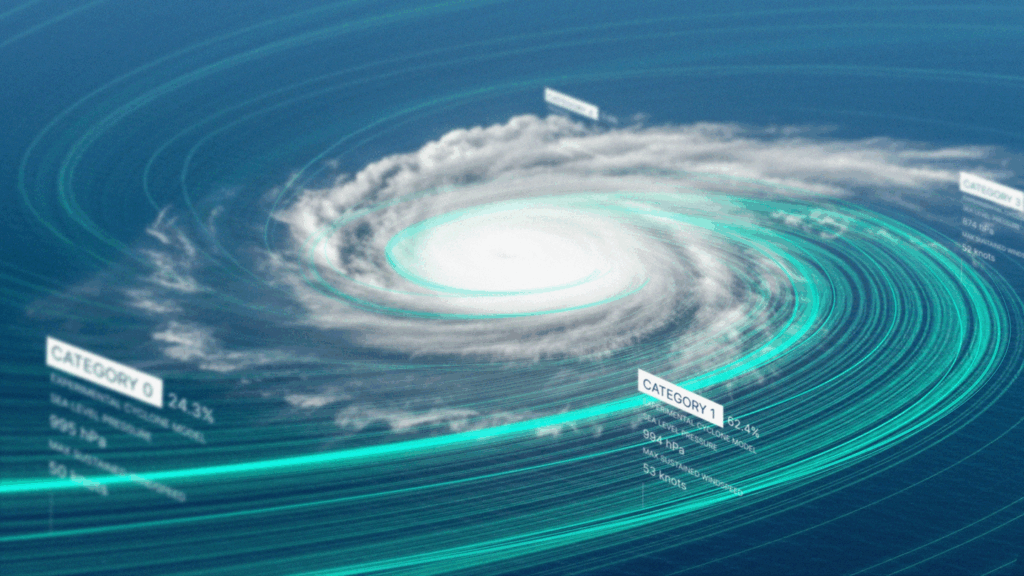June 13, 2025 — In a significant technological breakthrough aimed at improving global weather forecasting, Google has launched an AI-powered Weather Research Lab and introduced an experimental artificial intelligence model to predict tropical cyclones. The development is expected to play a crucial role in enhancing early warning systems and disaster preparedness, particularly in cyclone-prone regions.
The initiative, led by Google DeepMind, focuses on applying machine learning to analyze decades of historical climate data and satellite imagery. The newly developed AI model can simulate and forecast the path, intensity, and potential impact of tropical cyclones with remarkable speed and accuracy, offering a major advancement over conventional forecasting systems.
Unlike traditional weather prediction models that depend on complex physics-based simulations and require massive computing resources, Google’s AI model can generate forecasts in minutes. Early testing shows that the model can accurately predict cyclone trajectories up to seven days in advance—on par with or exceeding the performance of current state-of-the-art weather systems, such as those from the European Centre for Medium-Range Weather Forecasts (ECMWF).
The Weather Research Lab will serve as a collaborative platform for researchers, meteorologists, and climate experts to test and refine AI models for a variety of weather phenomena. Google stated that the lab will support research not only in cyclone forecasting but also in areas such as precipitation prediction, temperature modeling, and wind pattern analysis.
This initiative arrives at a critical time, as the world continues to experience an increase in the frequency and severity of extreme weather events due to climate change. The new AI cyclone model is particularly valuable for countries like India, Bangladesh, the Philippines, and other coastal nations that regularly face the devastating impact of tropical storms.
As part of its commitment to open science, Google has made the AI cyclone model publicly available. The company has released the model’s code, weights, and documentation, encouraging independent research, transparency, and collaboration. The move is intended to foster trust and ensure that the technology is accessible to a wide range of users, especially in regions with limited meteorological infrastructure.
Google has also emphasized the importance of responsible AI deployment, noting that it will closely monitor the model’s use to address issues related to bias, fairness, and equitable access. The Weather Lab will work with partners globally to ensure that these advanced tools are used ethically and effectively.
The launch of Google’s AI-powered weather initiatives signals a growing trend of integrating artificial intelligence into climate science. With the ability to deliver rapid and reliable forecasts, this technology could significantly enhance preparedness for natural disasters, potentially saving lives and reducing economic losses.



